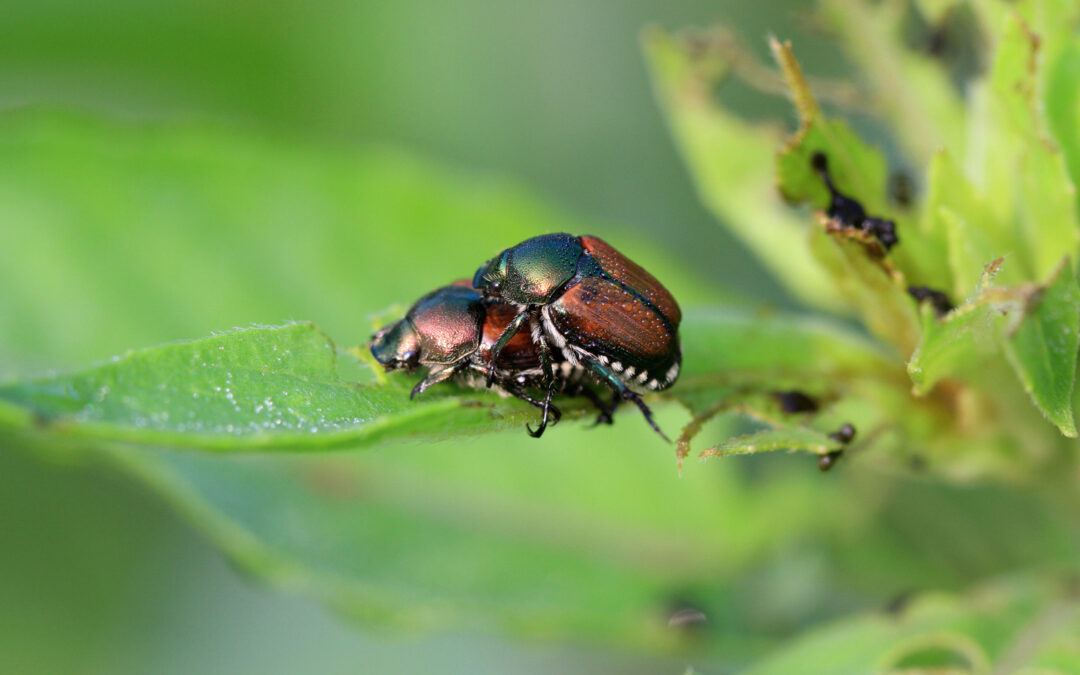Japanese beetle damage is super simple to recognize. Typically, you can see these bugs doing harm. The sure sign of a Japanese beetle invasion includes bare leaves. If you want these pests out of your landscape, below is some vital information on how to kill Japanese beetles.
Understanding How to Kill Japanese Beetles
A full attack is best. Begin by spraying the affected plants with neem oil or a pyrethrin-based Japanese Beetle spray at the first indication of an infestation.
Pyrethrin-based insecticides are a reliable way to regulate these pests on shrubs, trees, roses, flowers, and veggies. Besides controlling Japanese beetles, pyrethrin also controls flea beetles, Colorado potato beetles, cucumber beetles, and more.
Neem oil comes from a tree. When applied to trees, it lessens feeding. It is vital to note that neem oil is most effective at the first sign of infestation.
Hand Pick

Damage from Japanese Beetles
Japanese beetles are sluggish. You can snatch them off plants with your hands and throw them into a pail of soapy water. It’s best to do it in the a.m. when the beetles are not as attentive.
Prevention
Though these solutions won’t offer instant gratification, you will Japanese beetle-free next year. Beneficial nematodes destroy the larvae that become Japanese beetles. Preferably, use nematodes in the springtime before the beetles appear. The second phase of this prevention regimen is a milky spore, which also kills larvae. It takes 12 months to get incorporated into your soil, but it stays working for over ten years.
Trap
You should use a Japanese beetle trap only if you have a big landscape and can put the trap far away from your garden. If you have a tiny yard, this prevention method won’t work. If you use a trap, place it in your yard for 24 – 48 hours every few weeks.
Neem Oil
Neem oil can also be used on flowers, stopping diseases such as rust, scab, blackspot, anthracnose, and more.
Even if you use beneficial nematodes or milky spores, you can still get Japanese beetles. They might be slow, but these pests can fly over a mile to eat. A pyrethrin insecticide spray or neem oil could control these plagues. Call Lenoir Tree Service if you want a tree care professional to manage your Japanese beetle outbreak.

Recent Comments